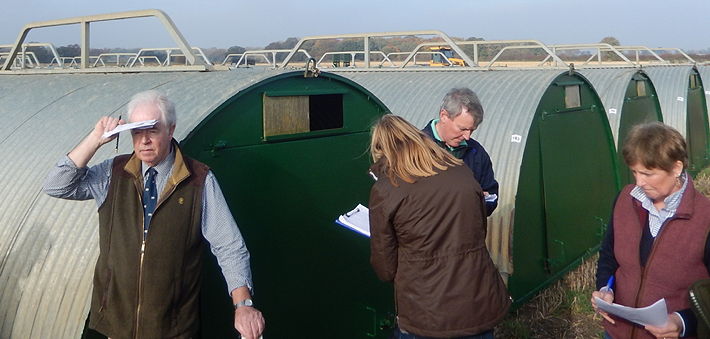The yawning gap remains between EU mainland and UK prices, although the SPP went up by 1.38p and now stands at 147.85p. Fortunately, the German producer price closed a tad easier dropping by two euro cents but this is seen more as a supply correction rather than a longer term downward trend and even allowing for this slight reduction, the German price is still higher than us at €1.83, which is equivalent to 163p/kg in real money.
Weekly contribution prices have stood on in some cases and others have gone up by a modest penny or two, with most now between 142p-148p but still well below where they should be and producers are continuing to question the methodology behind these prices which do not fully reflect UK pig meat values and are putting the brakes on the SPP which should be moving ahead at a much faster rate than it is.
Spot bacon was generally in very short supply and bids were anywhere between 148p-155p according to spec.
Cull sow prices have in the main stood on despite the euro improving in value, trading at 89.08p today, up from 88.56p a week ago.
Sow buyers are however still looking for culls and sellers who are prepared to haggle were in some cases able to squeeze slight increases, with most cull sows now worth between 98p and 103p in the main.
Weaner prices continue to move ahead, with the latest AHDB 7kg average up by almost £1 to £37.24 but with no quotation for 30kg weaners due to lack of numbers, these remain at the previous weeks price of £50.16/head.
Although the outlook for pig prices is reasonably optimistic, with fewer weaner buyers now operating in the market and others now running B&B arrangements there is very little free space for any spare weaners which is also putting something of a glass ceiling into the equation with fattening space becoming scarce, indicating that there may be more pigs in the system than originally forecast.
In the feed markets, cereal prices have remained at generally similar levels, with London feed wheat quoted for July at £158/t and £151/t for September. Barley looks better value at £135/t for July and £137/t for September.
Protein values have rallied to some extent, with July-October Hipro soya traded at £316/t. Spot sales of feed wheat on an ex farm basis saw values ease by £4-£6/t, with an overall UK average of £146.90/t looking fairly attractive for pig producers.
Chicago wheat futures have closed firmer and the same applies to soya and maize due to drought conditions in parts of Russia.
And finally, although China and the Far East have major problems to face from the ongoing swine fever epidemic, producers in the UK could also be faced with a dual challenge on the disease front following reports of UK exporters looking to buy live weaners to send to Europe as their prices are much higher than ours, with reports of 30kg weaners being worth up to £70 each in some cases.
However, movements of pigs and livestock vehicles in any direction to and from Europe presents a whole host of disease hazards, especially as far as pig and livestock truck movements are concerned travelling through areas such as Belgium where swine fever outbreaks have occurred and may still do in the future and the same applies to parts of Eastern Europe.
Added to this are reports of further dysentery outbreaks in the UK with a large Midlands pig rearing unit going down with the disease but, to the fury of some producers in the area, this was not disclosed until several weeks after the outbreak was first identified presenting further challenges and the risk of cross infection from livestock and feed lorries.
Swine dysentery can be best described as a “bloody disaster”.




